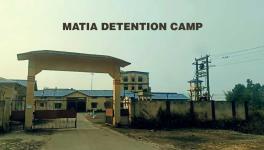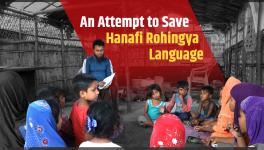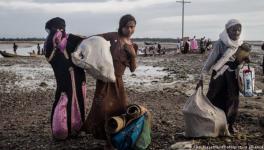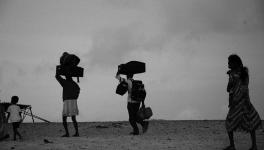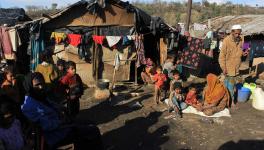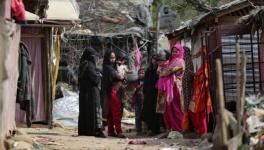UN Mission Recommends Action Against Myanmar Army for Crimes Against Rohingya
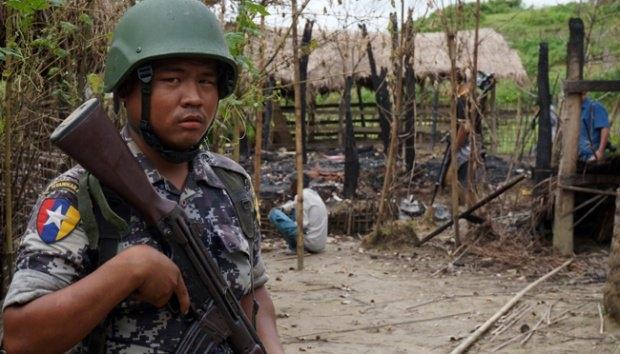
The United Nations Fact Finding Mission (FFM) in Myanmar has accused the Myanmarese army of a variety of crimes, including mass killings and gang rapes with a genocidal intent and crimes against humanity. The details on the crimes against the Rohingya were part of the recently released “Report of the Independent International Fact-Finding Mission on Myanmar”. The report noted that crimes against humanity had been committed in the Kachin, Rakhine and Shan States, principally by the armed forces, the Tatmadaw. In Kachin and Shan states, these include murder, imprisonment, enforced disappearance, torture, rape, sexual slavery and other forms of sexual violence, persecution and enslavement.
For three decades, successive Special Rapporteurs on the human rights situation in Myanmar have maintained that patterns of human rights violations were widespread and systematic, and linked to State and military policy. Allegations of gross human rights violations have continued since 2011, the report noted.
“I was lucky, I was only raped by three men,” one of the survivors stated, recalling how sometimes, up to “40 women and girls were raped or gang-raped. We (the armed forces) are going to kill you this way, by raping you,” another survivor reported being told, highlighting how the women and girls (mostly between 15 and 25 years) were systematically abducted, detained and raped in military and police compounds, often amounting to sexual slavery.
The 20-page-report recommended that the top five military officials who are behind the gruesome act should be prosecuted. Citing the names of six military generals, including Commander-in-Chief Min Aung Hlaing, the report emphasized that all of them must face investigation and prosecution for “genocidal intent” in the Rakhine state, as well as crimes against humanity and other war crimes in the states of Kachin and Shan.
The UN team carried out 875 interviews with victims and eyewitnesses, and also obtained satellite imagery and authenticated a range of documents, photographs and videos.
“The Tatmadaw soldiers don’t treat us like humans, they treat us like animals. They look at us like we shouldn’t even exist,” another victim told the UN mission team.
The UN mission maintained that “for decades, security forces have subjected the Rohingya to widespread theft and extortion. Arbitrary arrest, forced labour, ill-treatment, and sexual violence have been prevalent.” The report found that these grave crimes prompted the exodus of 700,000 Rohingyas last year.
Commenting on the role of the Myanmarese media and its inflammatory coverage of the activities of the ARSA (Arakan Rohingya Salvation Army, the insurgent group) the report noted that State-sponsored hate speech towards the Rohingya continued.
“I am not a very educated person but I hope the United Nations has the ability to get us justice by making sure that the Government of Myanmar can be questioned about what they did to us,” another victim told the UN mission.
The report found that “the scale, brutality and systematic nature of these violations indicate that rape and sexual violence are part of a deliberate strategy to intimidate, terrorise or punish a civilian population, and were used as a tactic of war”. Such a level of normalization is only possible when the state establishment made a climate of “long-standing impunity,” the report added.
“Given these considerations on the inference of genocidal intent, that there is sufficient information to warrant the investigation and prosecution of senior officials in the Tatmadaw chain of command so that a competent court can determine their liability for genocide in relation to the situation in Rakhine State,” the report said,
Among the recommendations of the UN mission report was a process for ensuring accountability for crimes under international law committed in Myanmar. The team recommended that the situation is referred to the International Criminal Court or alternatively to an ad hoc international criminal tribunal. “The Security Council should adopt targeted individual sanctions, including travel bans and asset freezes, against those who appear most responsible for serious crimes under international law. It should also impose an arms embargo on Myanmar,” the report noted.
Get the latest reports & analysis with people's perspective on Protests, movements & deep analytical videos, discussions of the current affairs in your Telegram app. Subscribe to NewsClick's Telegram channel & get Real-Time updates on stories, as they get published on our website.










